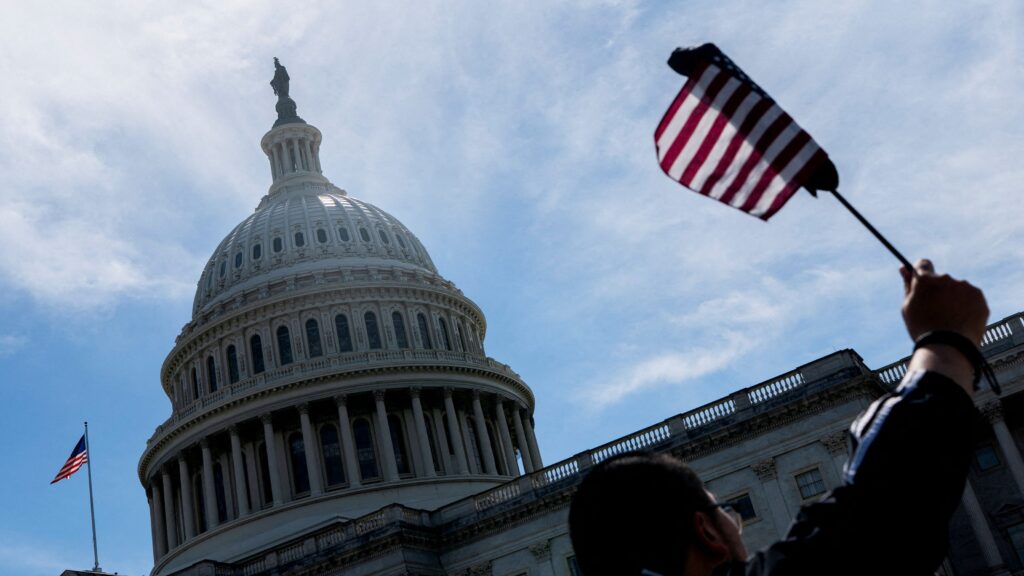President Donald Trump’s tax bill proposes a work requirement for millions of Medicaid recipients to maintain their health insurance, aiming to motivate recipients to take charge of their health and reduce taxpayer burden. However, critics argue that most recipients already work in low-paying jobs without health insurance and that implementing work requirements could lead to many eligible individuals losing coverage due to administrative challenges.
The concept of Medicaid churn, where eligibility fluctuates due to changes in income or employment status, complicates the proposed work requirement. The bill would mandate more frequent eligibility checks and require able-bodied adults to work 80 hours a month or qualify for exemptions. Arkansas’ similar work requirement resulted in thousands losing coverage, particularly impacting those without internet access.
Health experts caution that the legislation could lead to a significant increase in the uninsured population, with estimates suggesting millions could lose coverage by 2034. Additionally, concerns are raised about the administrative burden and potential for eligible individuals to inadvertently lose coverage due to compliance difficulties.
While proponents argue that the work requirement is necessary to control Medicaid spending, critics emphasize the negative impacts on vulnerable populations. Public opinion reflects worries about Medicaid cuts affecting access to healthcare, with a stark partisan divide in perceptions of the Trump administration’s Medicaid policies. The proposed changes could have far-reaching consequences on health coverage for low-income Americans, highlighting the ongoing debate surrounding Medicaid reform.

